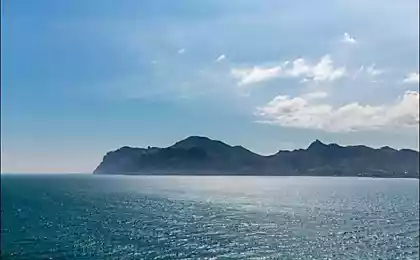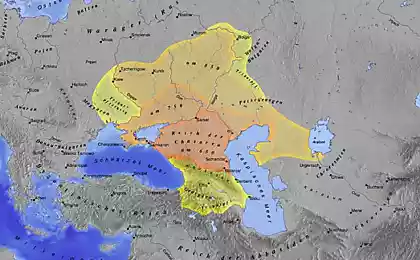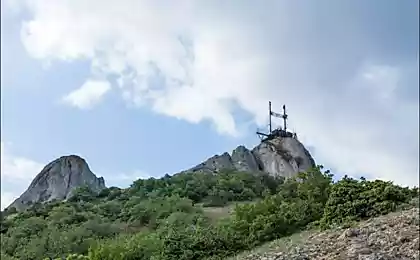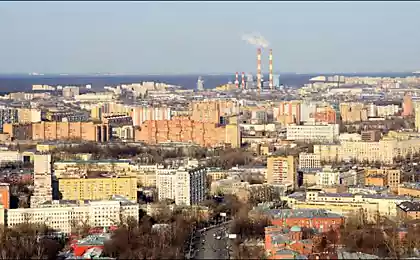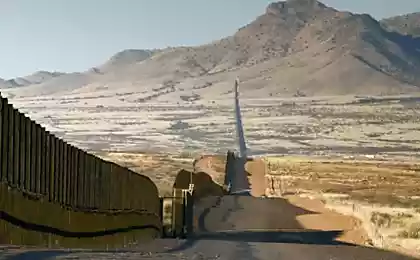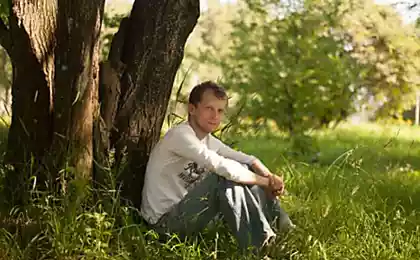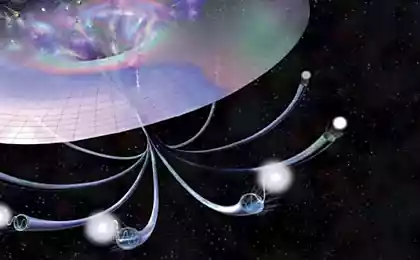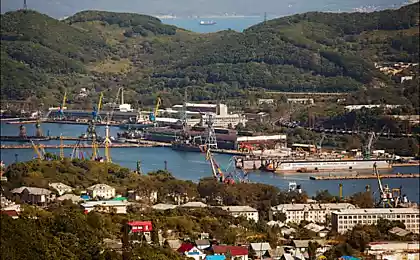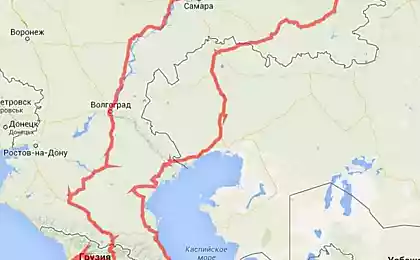830
Karadag on the horizon
Familiar to many holidaymakers in Crimea view - an outstanding array of far out to sea on the horizon Karadag. Looking at it from this point, and not just say that once there the volcano erupted, completely changing the landscape of the vast surrounding areas ...
Kiev volcanologist Stepan Romchishin says that the volcano Karadag died 150 million years ago, and has the potential to wake up and now - "If explode Karadag, Crimea will not be until the end of the day. A cloud of volcanic ash will destroy every living thing to Dnepropetrovsk. The column of ash rises to 50 kilometers, and the magma will follow a few days. During the eruption of a volcano under a cavity, so he falls into the abyss, and then explodes. The force of the volcano can be equated to a hundred atomic bombs ".
Scientists suggest that the explosion incandescent to 200 ° C ash smashed a huge area- up to the Russian city of Smolensk in the north and part of the territory of Turkey and other Black Sea countries to the south, west and east. Aqua speed will reach 400 km / h.
For example, recently the most powerful volcanic eruption, on the assumptions of scientists, there were 74 thousand years ago in New Zealand. It almost became fatal to mankind. The air is thrown millions of tons of ash and sulfur. Worldwide temperature fell to 15 degrees. The ash floating in the atmosphere and do not miss the sun's rays. Sulphur rains destroyed nearly all the forests in Asia. Then, on the restoration of nature it took more than 300 years.
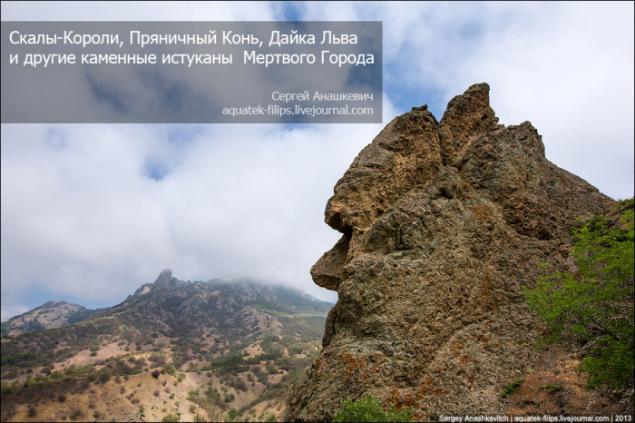
Karadag is very different from all other mountain ranges in the Crimea. The chaotic jumble of sinister black rocks, aimed in different directions, inaccessible gorge and dips, stone walls, which snap into the sea and forming inaccessible from the shore of the bay, the harsh stone figures meter Cities.
All this is a consequence of acting here 150 million years ago, volcanic
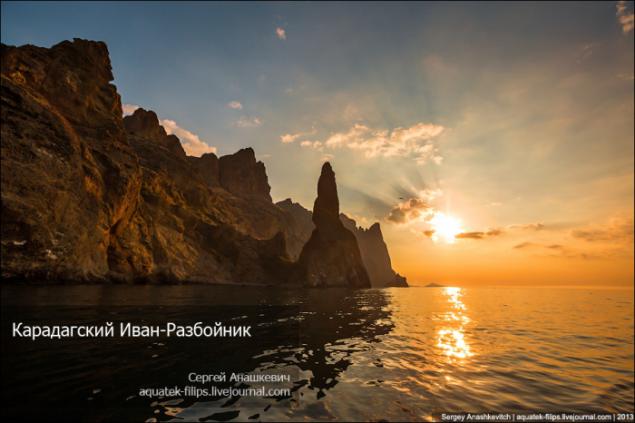
Diverse and unusual forms of relief volcanic massif with a complex geological structure emerged in the later periods, by weathering and erosion. The gently sloping and flat continental slope of the Coastal Range is protected, like armor, from the destruction of a powerful broad lava flow ...
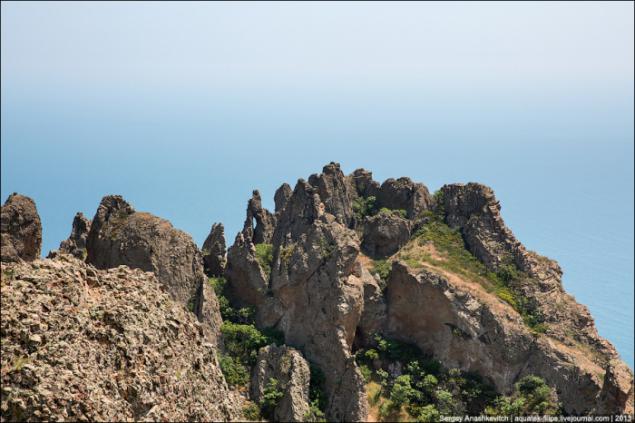
And the opposite slope, facing the sea, completely different. It is strongly dissected and difficult to pass, rugged canyons and surrounded with sloping ridges of lava flows, bolt upright along the slope.
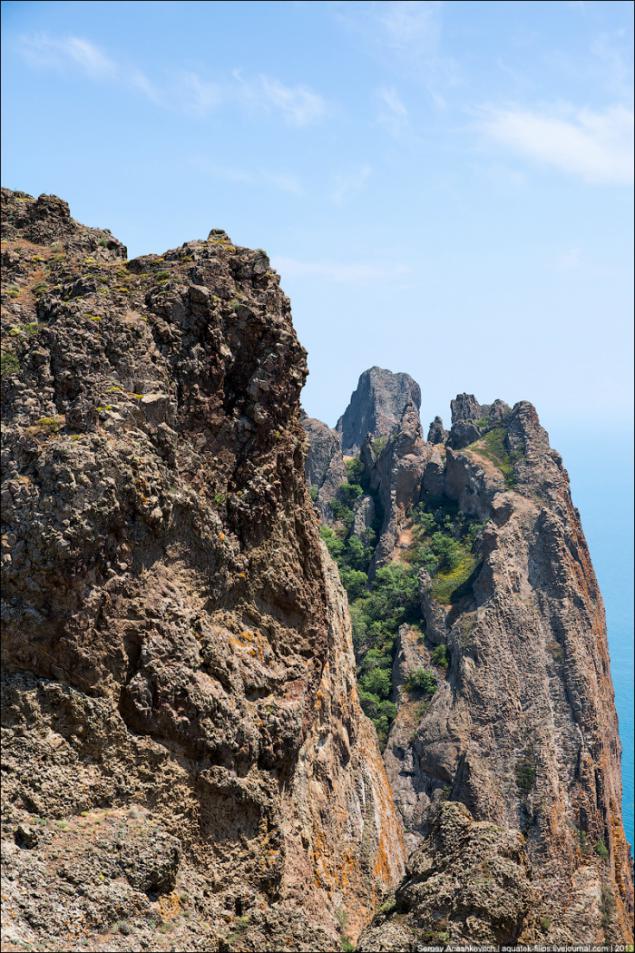
Diverse in appearance and mineral composition of volcanic rocks Karadag formed during the solidification of lava. Very often there are pillow lavas flows. It is a chaotic jumble of isolations lava cushion, and ballonoobraznoy ellipsoidal shape with smooth contours, and each of them with a solid cooling surface hardening crust. Pillow flows particularly spectacular on the southern slope of the ridge Magnetic, in which they extend obliquely in the form of powerful sloping stone walls. There are seven flow capacity of 15 - 25 m each.
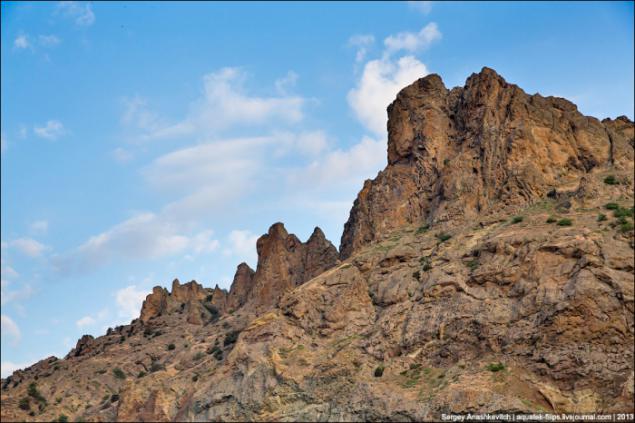
We should also tell about the various places where the craters and lava to the surface. Remnants of craters on Karadag few. The most famous of them - the Devil's Chimney. Perfectly preserved, spectacular, beautiful classical concentric shapes - a perfect example of subvolcanic bodies.
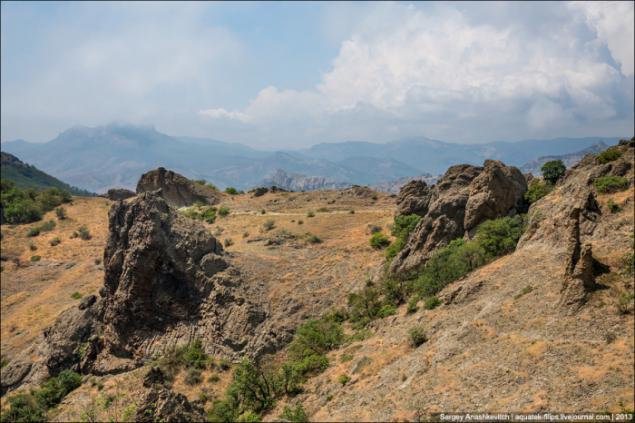
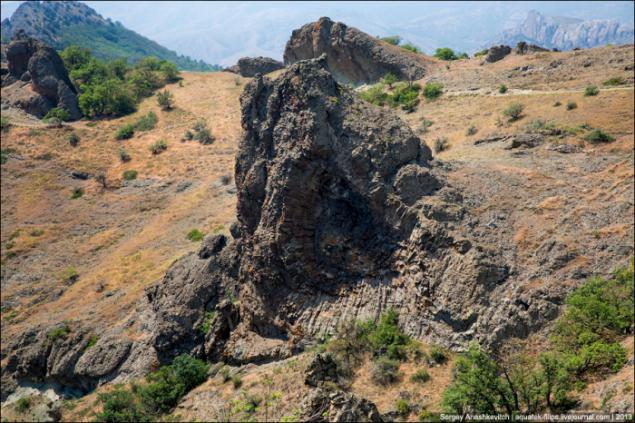
The second crater is the brightest representative of the rock Ivan Rogue.
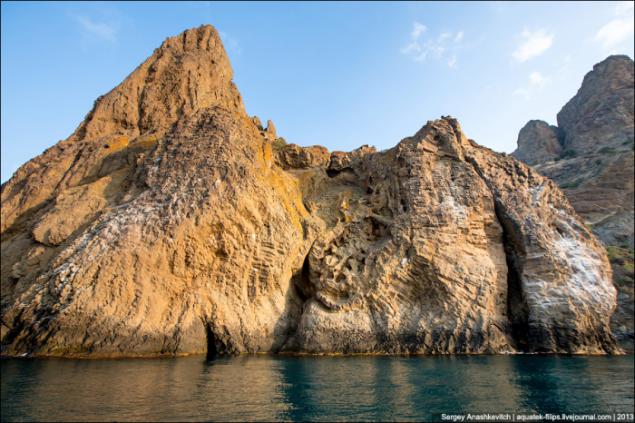
Here is another part of the giant circle - Sail Rock
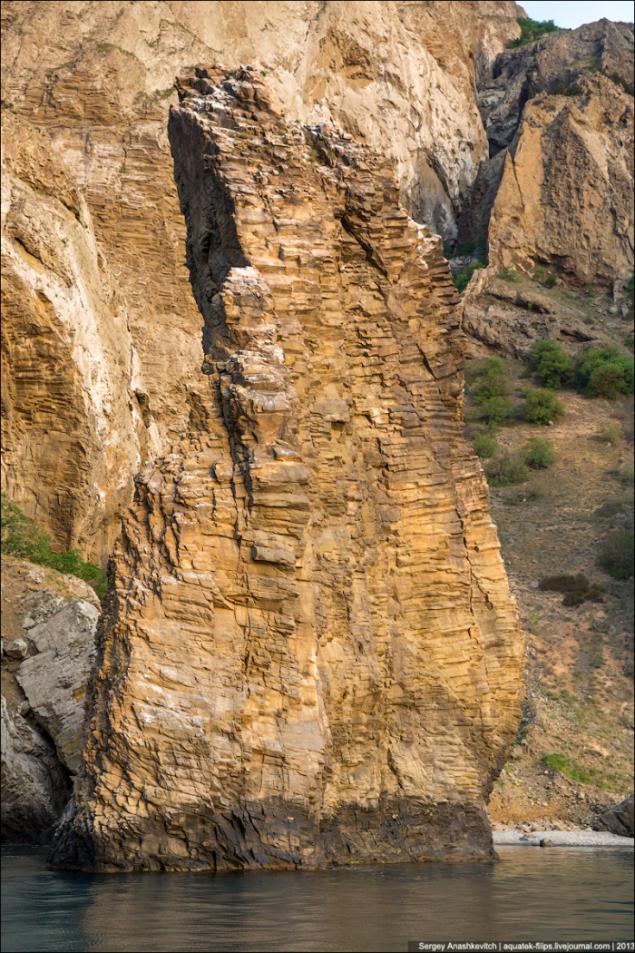
We should also be said about the numerous dykes. Dyke - a frozen magma plate-like shape, the prepared weathering from others less resistant rocks. The most famous Karadag dike - Dyke Lion. Located under the Devil's Fireplace crater, it is surrounded by a few small and one large dike. In addition, the structure of the Coastal Range in relation to the ridge Hoba-Tepe allows scientists to suggest that it is here that housed the main crater of the volcano.
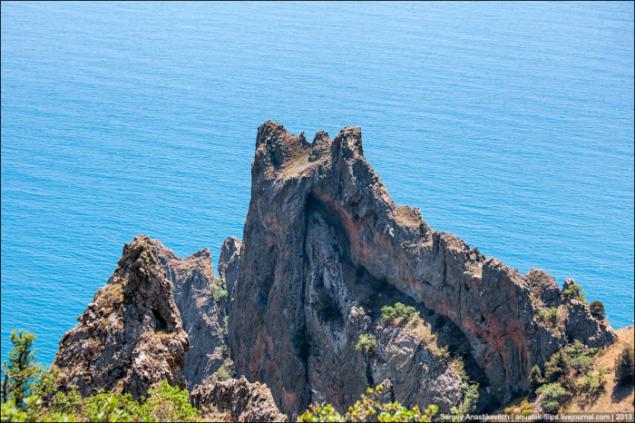
Sometimes there is a "stone forest" of giant teeth, teeth and stone peaks, which are formed in the thick layers of volcanic tuff, dissected by vertical cracks. It's all dykes surrounding Dyke Leo
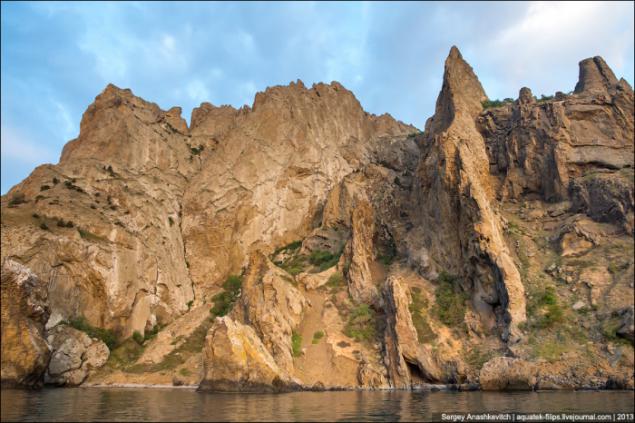
Famous Golden Gate - a rock-outlier, towering over the failure of the sea and the volcano is also generated
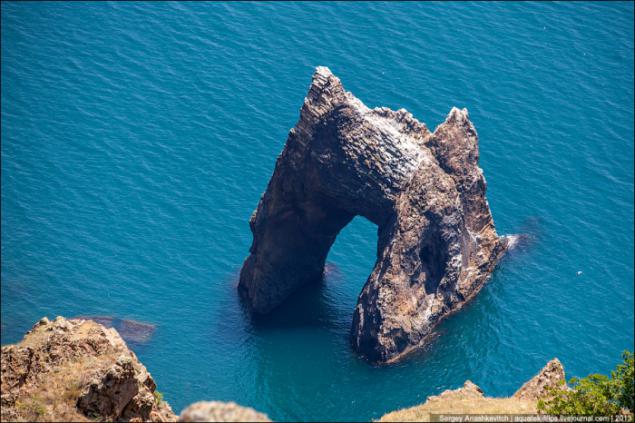
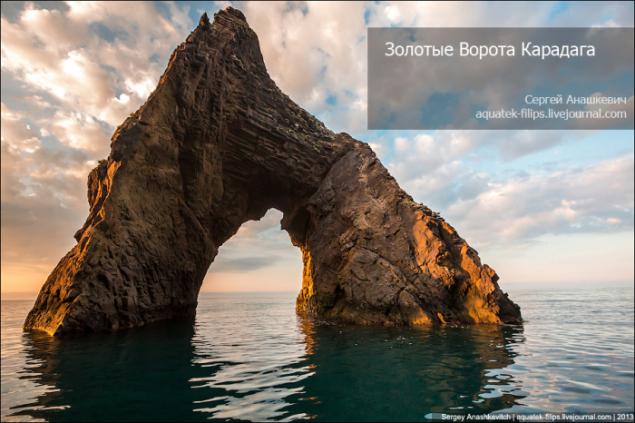
The figures, remnants of the entrance to the Dead City
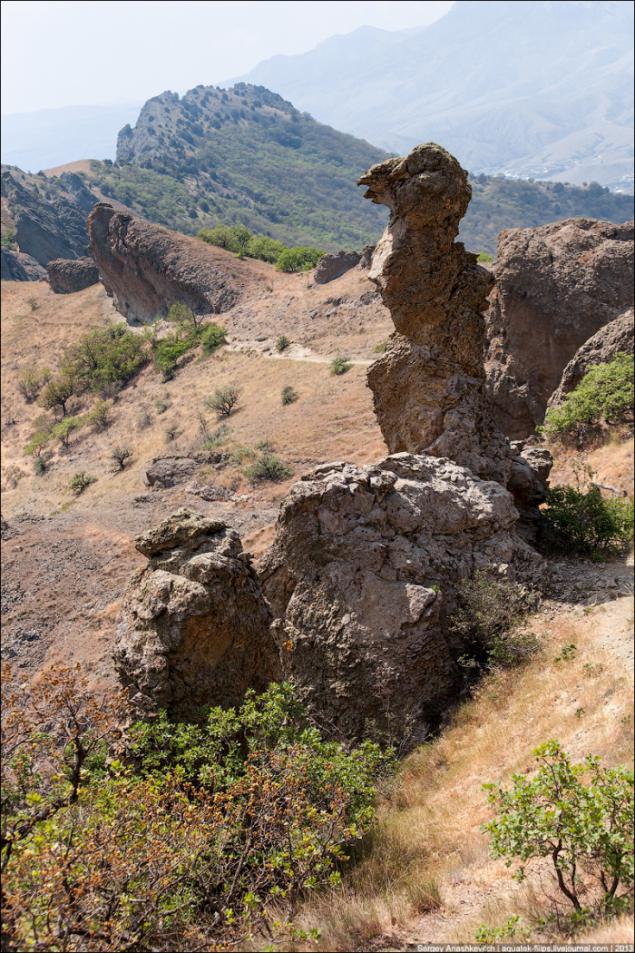
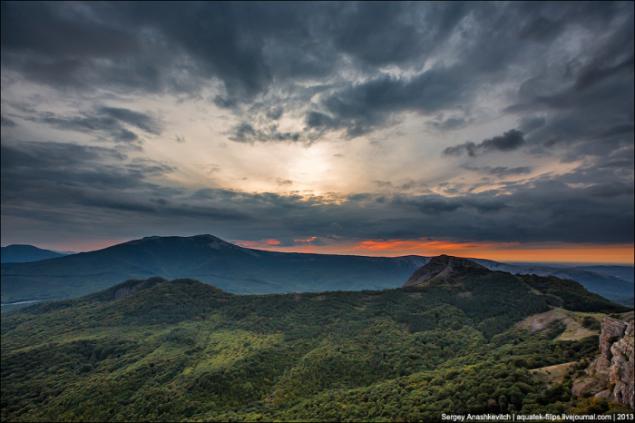
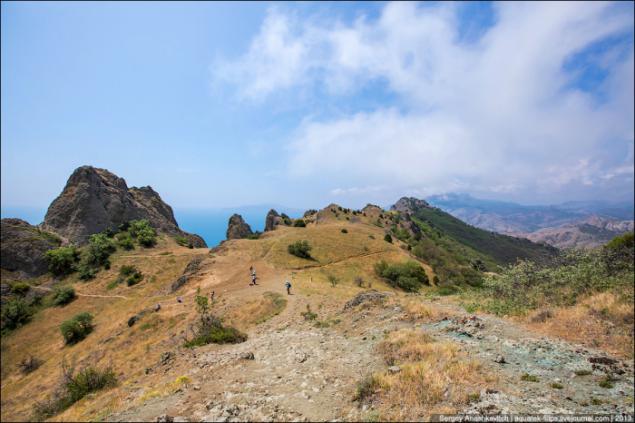
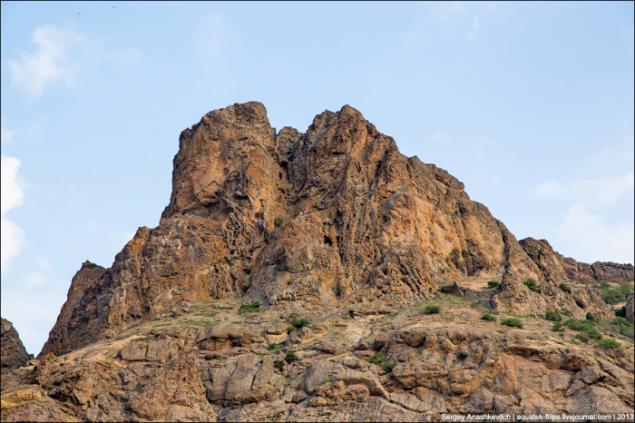
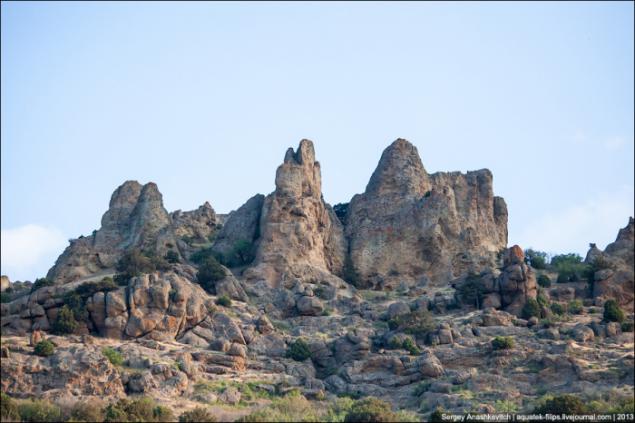
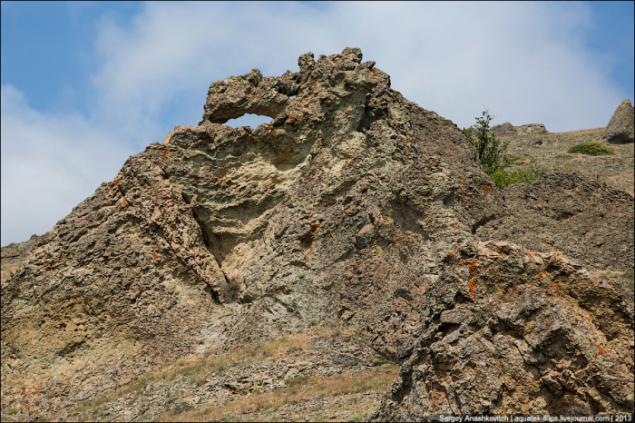
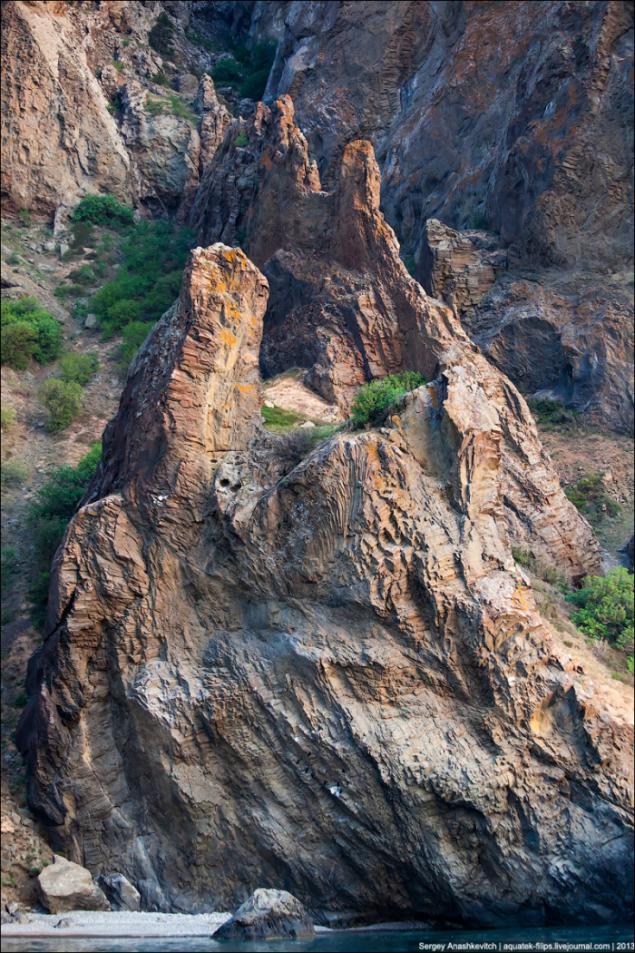
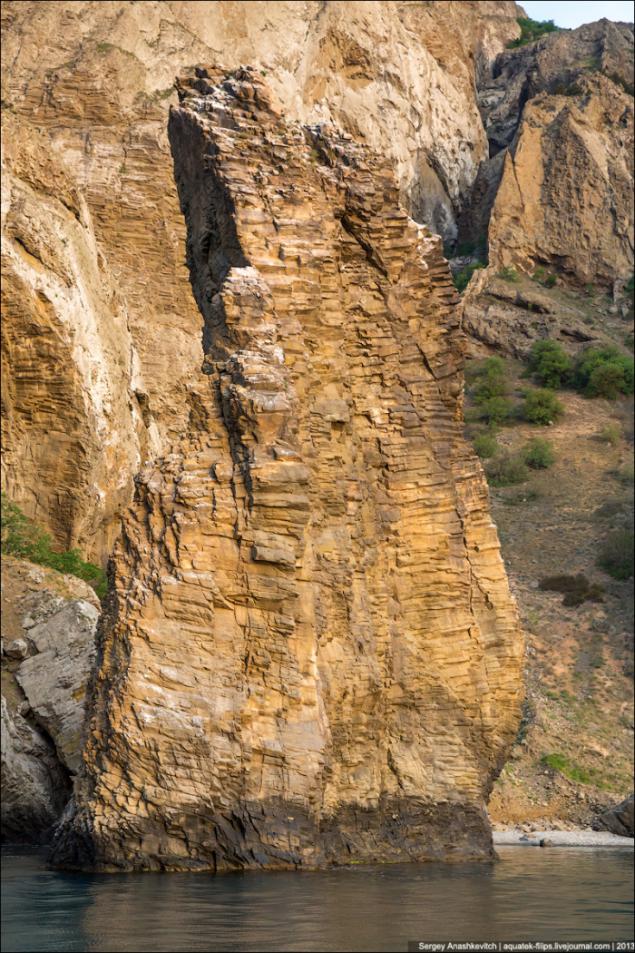
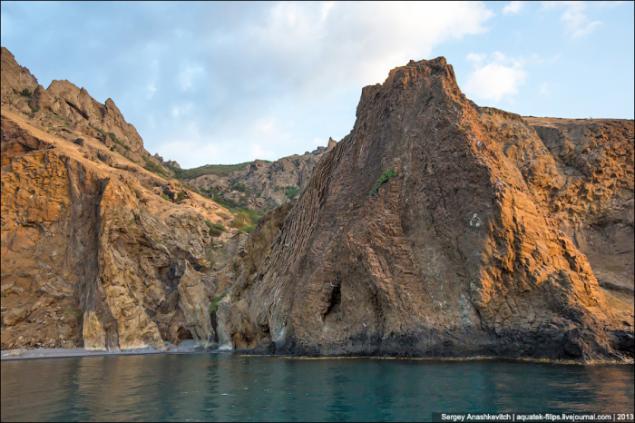
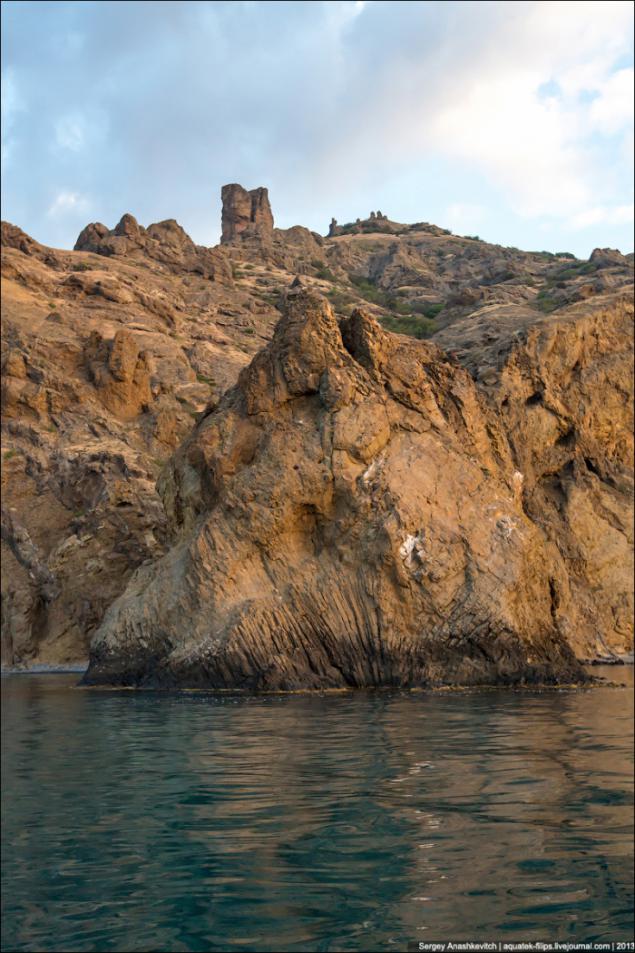
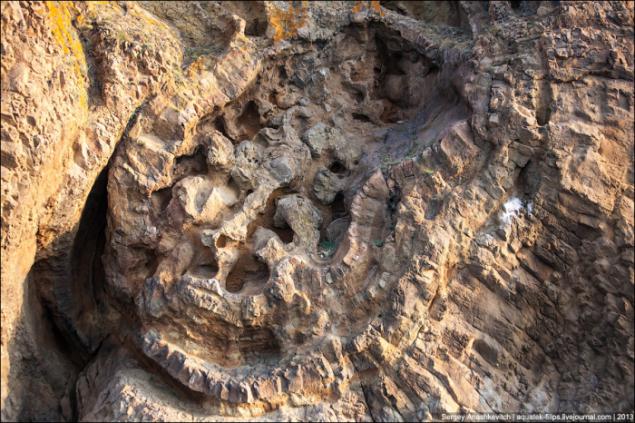
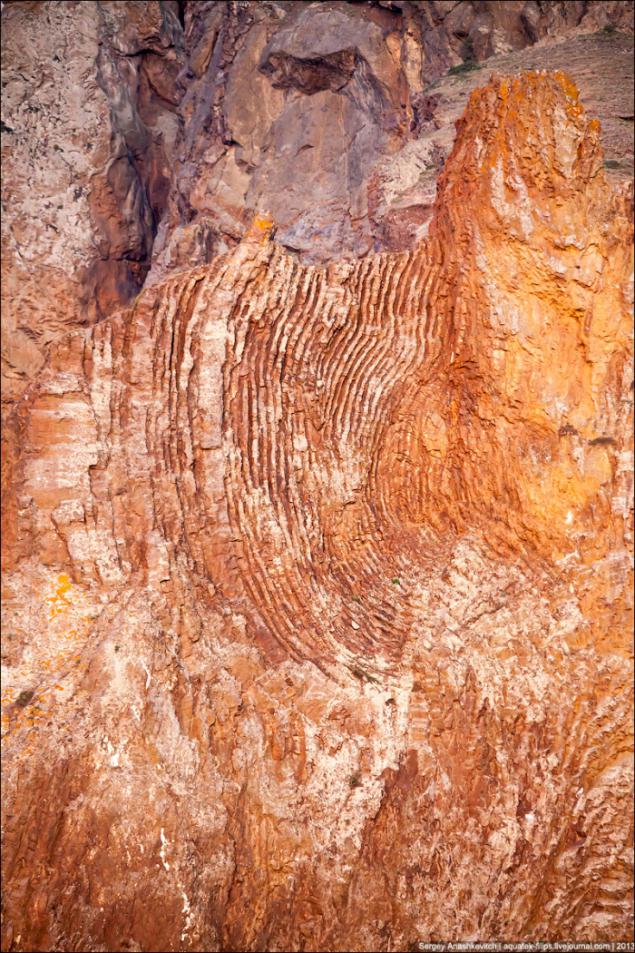
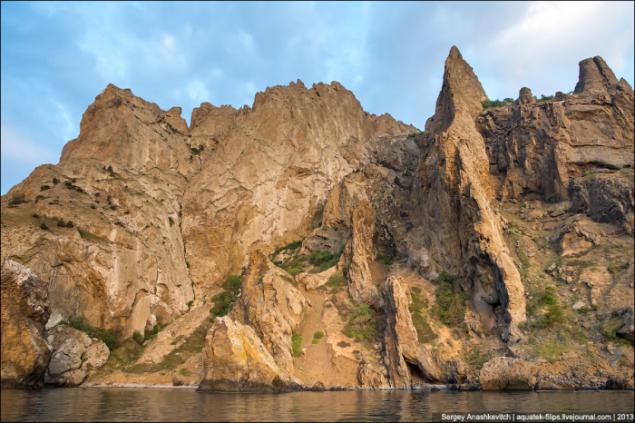
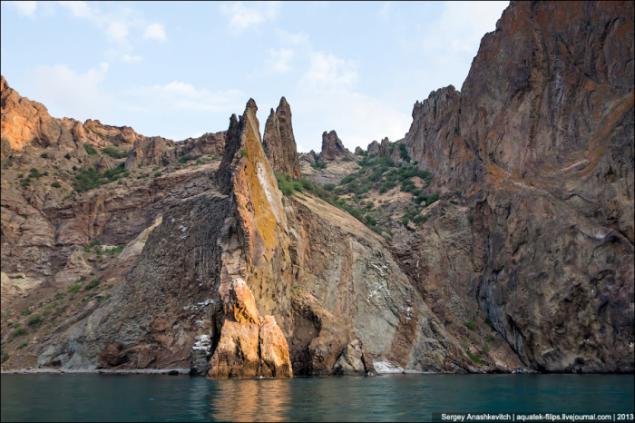
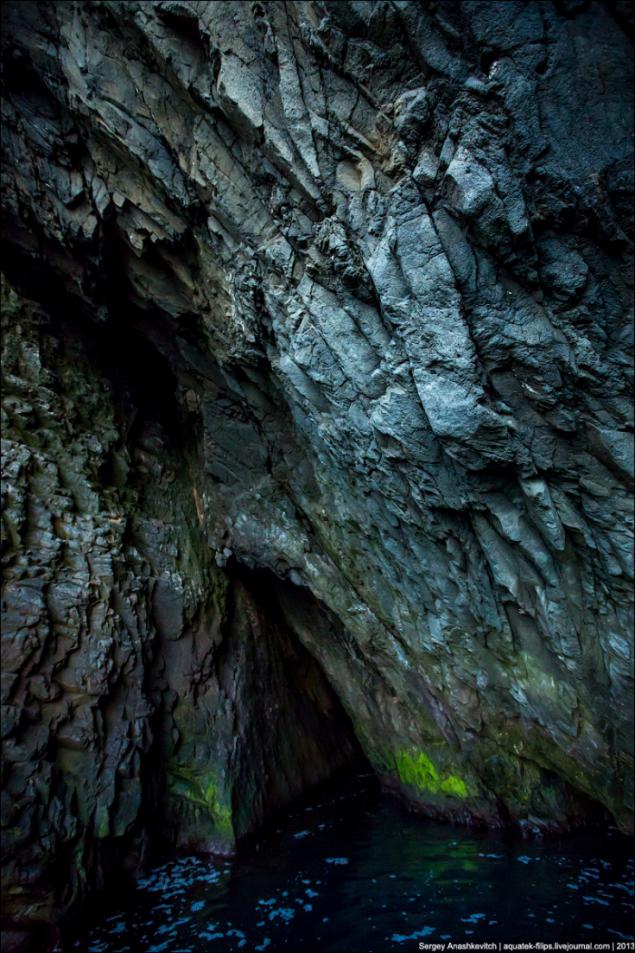
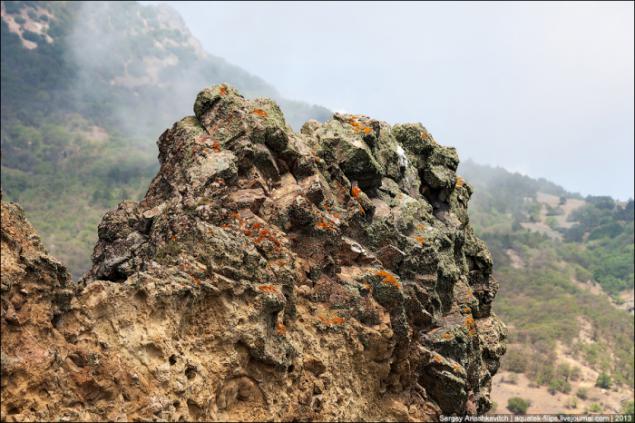
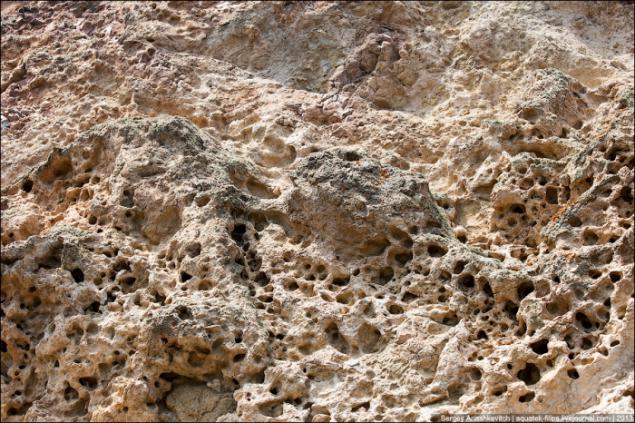
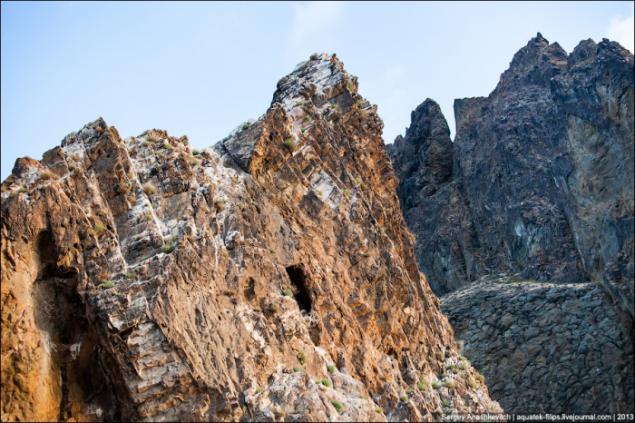
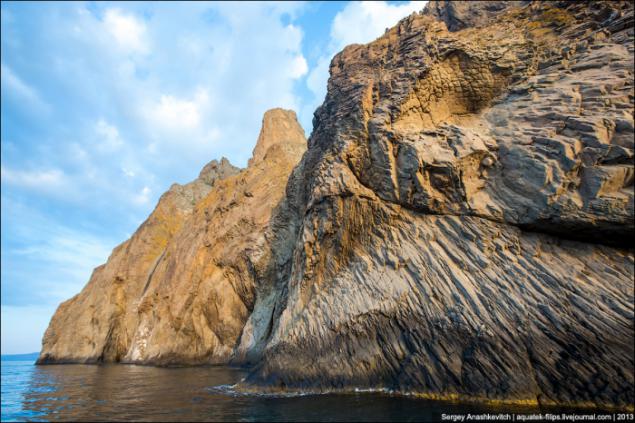
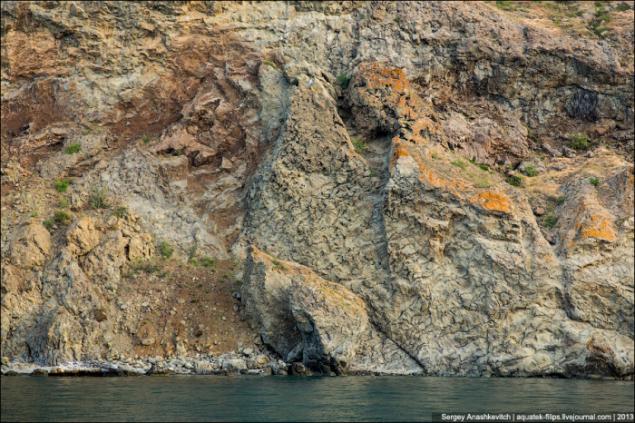
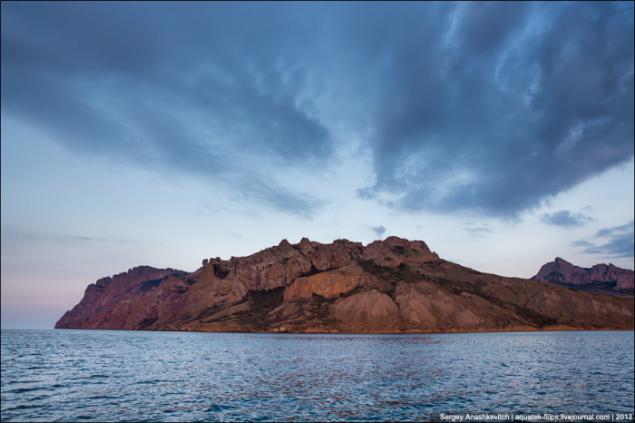
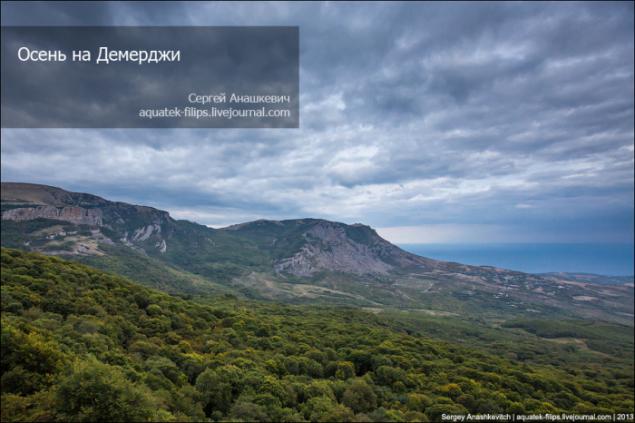
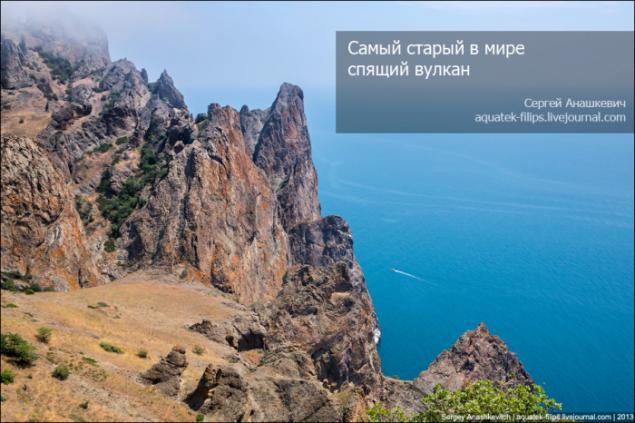
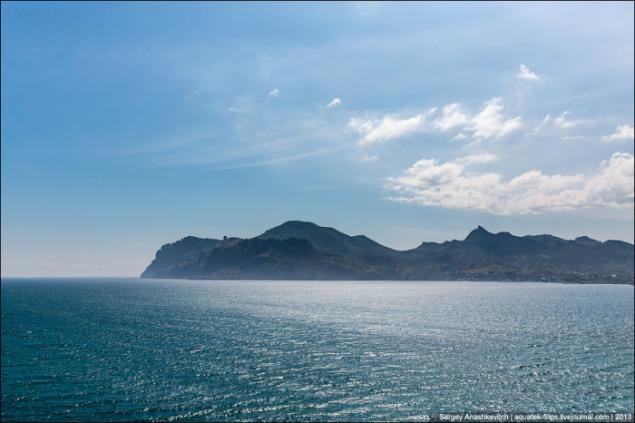
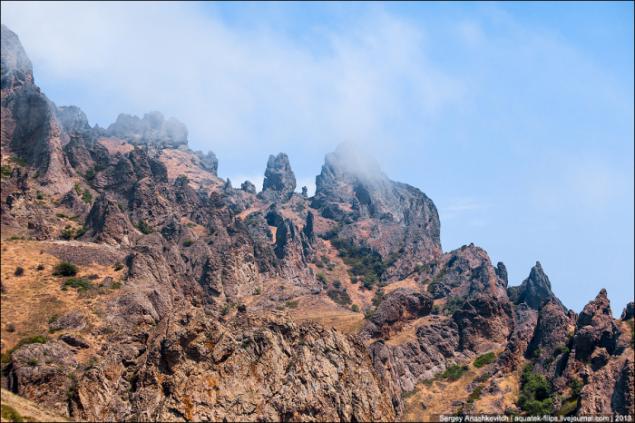
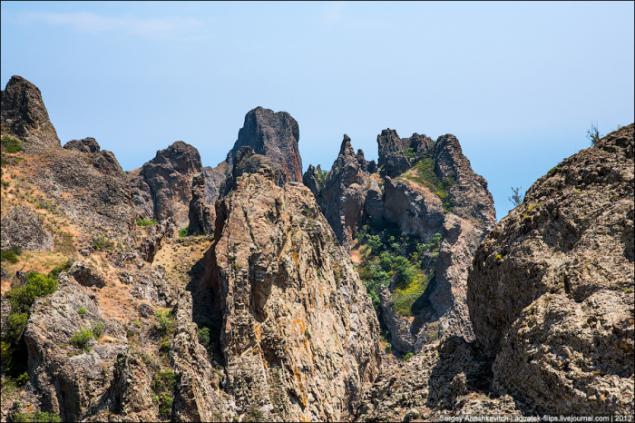
Kiev volcanologist Stepan Romchishin says that the volcano Karadag died 150 million years ago, and has the potential to wake up and now - "If explode Karadag, Crimea will not be until the end of the day. A cloud of volcanic ash will destroy every living thing to Dnepropetrovsk. The column of ash rises to 50 kilometers, and the magma will follow a few days. During the eruption of a volcano under a cavity, so he falls into the abyss, and then explodes. The force of the volcano can be equated to a hundred atomic bombs ".
Scientists suggest that the explosion incandescent to 200 ° C ash smashed a huge area- up to the Russian city of Smolensk in the north and part of the territory of Turkey and other Black Sea countries to the south, west and east. Aqua speed will reach 400 km / h.
For example, recently the most powerful volcanic eruption, on the assumptions of scientists, there were 74 thousand years ago in New Zealand. It almost became fatal to mankind. The air is thrown millions of tons of ash and sulfur. Worldwide temperature fell to 15 degrees. The ash floating in the atmosphere and do not miss the sun's rays. Sulphur rains destroyed nearly all the forests in Asia. Then, on the restoration of nature it took more than 300 years.

Karadag is very different from all other mountain ranges in the Crimea. The chaotic jumble of sinister black rocks, aimed in different directions, inaccessible gorge and dips, stone walls, which snap into the sea and forming inaccessible from the shore of the bay, the harsh stone figures meter Cities.
All this is a consequence of acting here 150 million years ago, volcanic

Diverse and unusual forms of relief volcanic massif with a complex geological structure emerged in the later periods, by weathering and erosion. The gently sloping and flat continental slope of the Coastal Range is protected, like armor, from the destruction of a powerful broad lava flow ...

And the opposite slope, facing the sea, completely different. It is strongly dissected and difficult to pass, rugged canyons and surrounded with sloping ridges of lava flows, bolt upright along the slope.

Diverse in appearance and mineral composition of volcanic rocks Karadag formed during the solidification of lava. Very often there are pillow lavas flows. It is a chaotic jumble of isolations lava cushion, and ballonoobraznoy ellipsoidal shape with smooth contours, and each of them with a solid cooling surface hardening crust. Pillow flows particularly spectacular on the southern slope of the ridge Magnetic, in which they extend obliquely in the form of powerful sloping stone walls. There are seven flow capacity of 15 - 25 m each.

We should also tell about the various places where the craters and lava to the surface. Remnants of craters on Karadag few. The most famous of them - the Devil's Chimney. Perfectly preserved, spectacular, beautiful classical concentric shapes - a perfect example of subvolcanic bodies.


The second crater is the brightest representative of the rock Ivan Rogue.

Here is another part of the giant circle - Sail Rock

We should also be said about the numerous dykes. Dyke - a frozen magma plate-like shape, the prepared weathering from others less resistant rocks. The most famous Karadag dike - Dyke Lion. Located under the Devil's Fireplace crater, it is surrounded by a few small and one large dike. In addition, the structure of the Coastal Range in relation to the ridge Hoba-Tepe allows scientists to suggest that it is here that housed the main crater of the volcano.

Sometimes there is a "stone forest" of giant teeth, teeth and stone peaks, which are formed in the thick layers of volcanic tuff, dissected by vertical cracks. It's all dykes surrounding Dyke Leo

Famous Golden Gate - a rock-outlier, towering over the failure of the sea and the volcano is also generated


The figures, remnants of the entrance to the Dead City


























